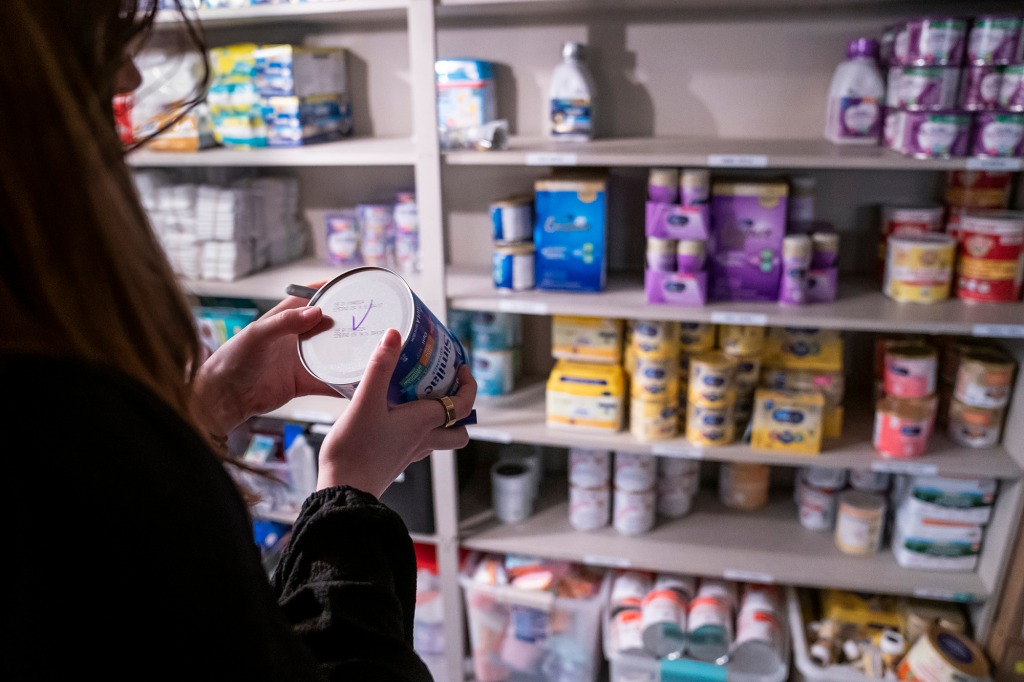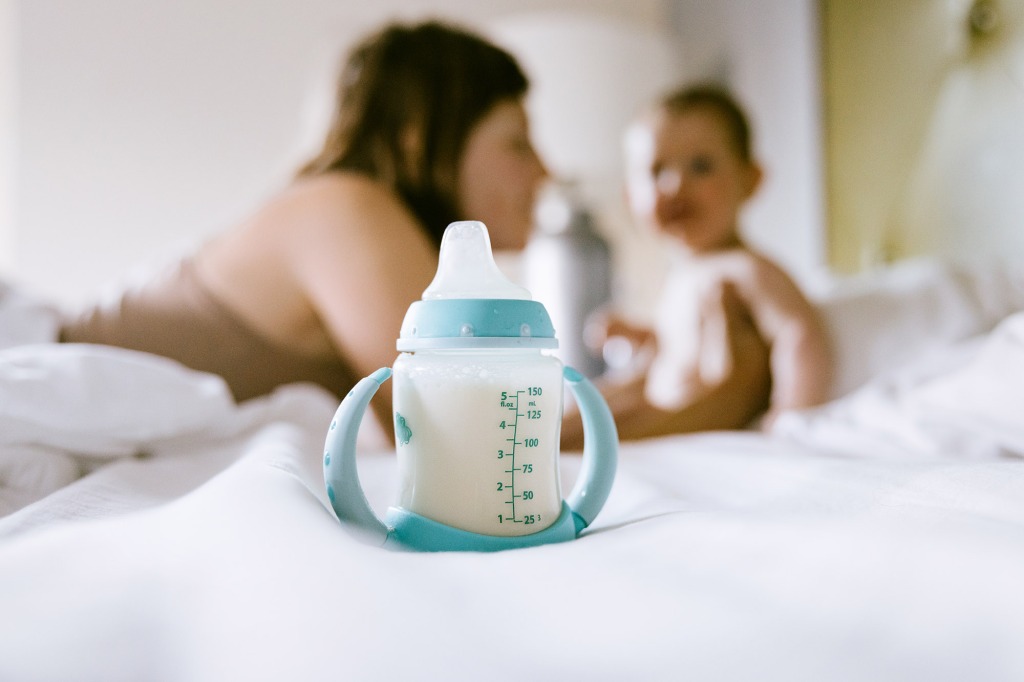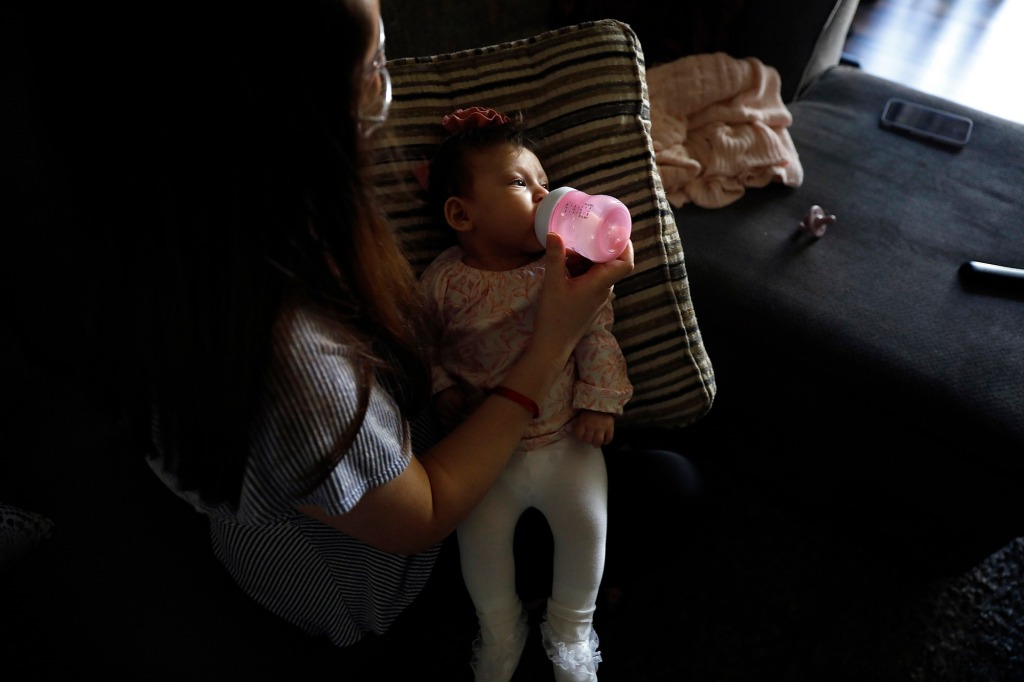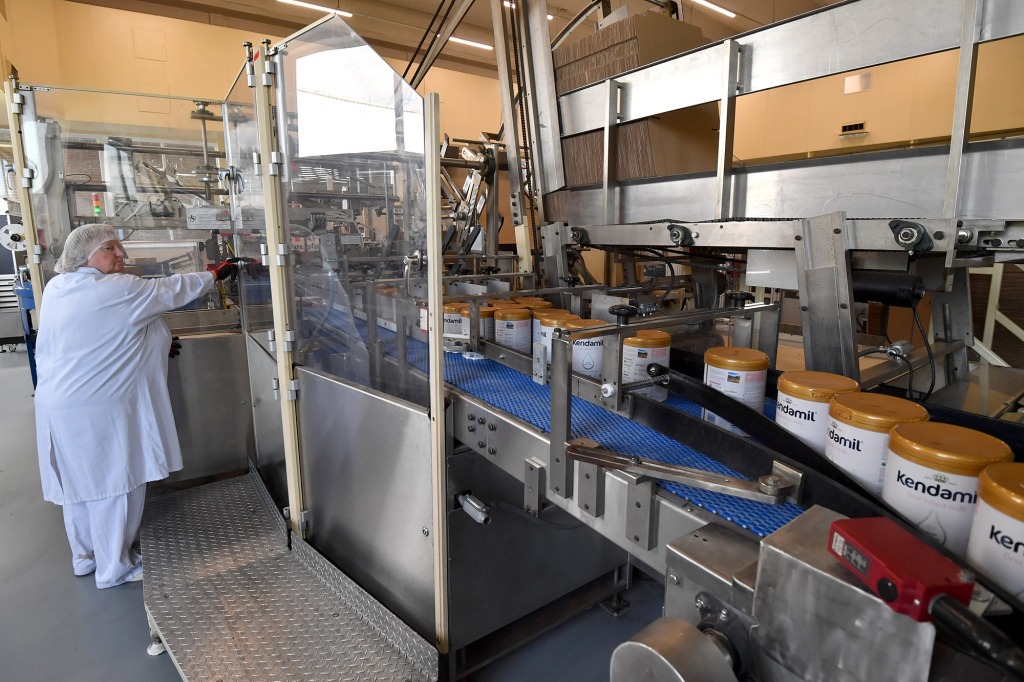Should you use imported products? What to know now
As supply chain issues continue as a result of the pandemic, parents and caregivers are still grappling with a shortage many never anticipated — the baby formula storage.
In response, multiple federal agencies are working in concert to import formula that’s not produced in the United States.
Since this selection of infant formulas may differ from what was previously available, the Academy of Nutrition and Dietetics, a trade association headquartered in Chicago, provides tips and guidance about the differences between domestic and imported brand formulas.
“As of July 10, the federal government has transported more than 44 million 8-ounce bottle equivalents of infant formula to the U.S.,” the academy said in a press release.
Baby formula may be the only source of nutrition for many infants up until the age of 6 months, said Amy Reed, national spokesperson for the Academy of Nutrition and Dietetics.
But the shortage is not only impacting infants. Many children and adults depend on formula varieties to meet their dietary needs due to digestive or neurologic issues that make it difficult to eat by mouth, Reed noted.

Reed told Fox Digital News that some children and adults require elemental formula that’s broken down for easy digestion.
Yet this formula has been greatly impacted by the formula recall because there may not be substitutes.
“Moving forward, it is not only the infants that need their access to nutrition protected, but the children and adults who rely on specialized formulas need to be protected as well,” Reed said.

As a reminder, she said baby formula is designed to be as close as possible to breast milk, but it still cannot replicate some of breast milk’s natural immune properties.
When first purchasing infant formula imported into the U.S., moms and dads should find ones that meet specific criteria and safety standards, Reed added.
She also expressed caution about the purchase of formulas that are not regulated by the Federal Drug and Administration (FDA) despite their rise in popularity.
“Infant formulas that are sold in the U.S. meet the minimum and maximum nutrient requirements of calories, protein, fat, vitamins and minerals,” Reed said.

The scoop sizes between some international and domestic infant formula may differ — so caregivers should follow the manufacturer’s labeling when preparing baby formula. They should not add more water to “stretch” the amount of formula per serving, she noted.
The required iron levels are lower in some imported infant formulas compared to many U.S. formulas; even so, they still meet FDA requirements.
(If a caregiver is worried about the infant’s iron status, that parent should seek a health care provider’s help and guidance.)
The U.S. Customs and Border Patrol (CBP) shares information on its website about the requirements for importing formula.
It notes, “Infant or baby formula may be imported to the United States without prior sanction by the Food and Drug Administration (FDA), as long as the facilities that produce, store or otherwise handle the products are registered with FDA, and prior notice of incoming shipments are provided to FDA.”
It also shares the following: “Imported infant or baby formula products are subject to FDA inspection when offered for import at the U.S. ports of entry … FDA may detain shipment of products offered for import if the shipment is not compliant with FDA’s requirements.”
In addition, the FDA shared in a press release in June that “the agency is leveraging a number of flexibilities to bolster the supply of products that serve as the sole source of nutrition for many infants while ensuring the infant formula can be used safely and provides adequate nutrition.”
It also said, “The FDA remains in further discussions with manufacturers and suppliers regarding additional supply to ensure there’s adequate infant formula available wherever and whenever parents and caregivers need it.”

‘Formulas taste different’
Reed, for her part, advises that consumers purchase age-appropriate formula for their children (they should always consult with their pediatricians if they have any questions or concerns).
Some imported infant formulas are designed for infants in certain age ranges.
“Infant formulas are labeled with an expiration date to ensure quality and safety standards are met,” she said. Once the formula is expired, generally it should not be used.
If an infant is allergic to cow’s milk protein, it’s best to consult with a physician or registered dietitian nutritionist for a recommendation of a new brand of formula, she said.

“Formulas taste different, so if your infant or child continues to refuse the new formula after several tries, contact your physician or RDN [registered dietician nutritionist] for additional guidance,” Reed said.
Reed provided some tips to promote bonding between parent and child that may mimic the breastfeeding experience.
“Parents can practice kangaroo care with their newborns, which is skin-to-skin contact between them and their baby. Parents can also look their baby in the eye as they talk or sing to them while bottle feeding.”
The academy noted that mothers need support for breastfeeding as they go back to work.
Not all moms can or will nurse for a variety of reasons, many doctors have pointed out, however.
“An increase in the breastfeeding rate in the country would also decrease the demand for formula,” the academy said.
“These efforts would significantly improve access to safe and stable nutrition for infants in our country.”
Read the full article Here


